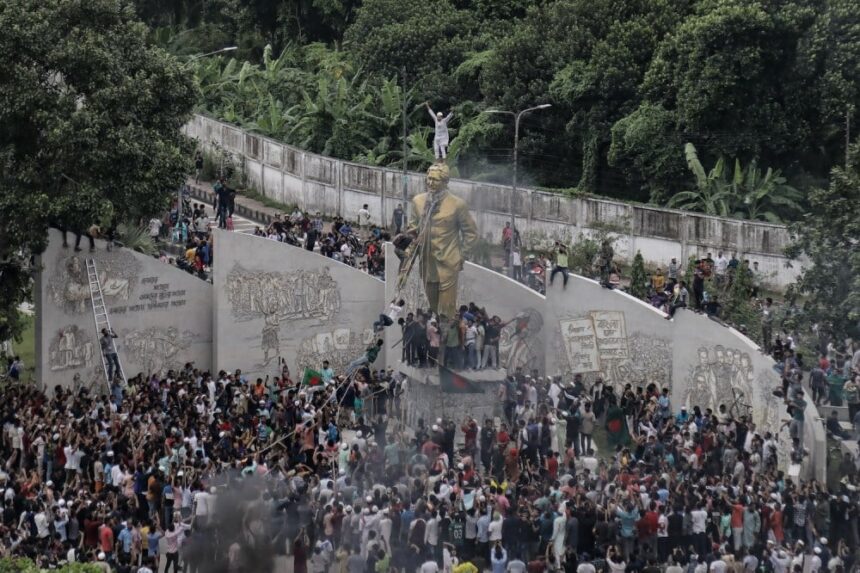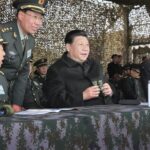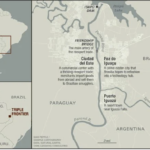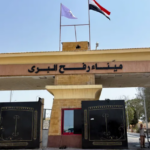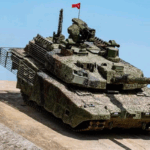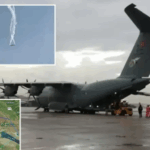Summary by Geopolist | Istanbul Center for Geopolitics:
Prime Minister Sheikh Hasina of Bangladesh was forced to flee the country on Monday as protests against her administration escalated. The demonstrations, which began over issues related to civil service job quotas for freedom fighters, quickly evolved into widespread discontent with Hasina’s government. The public’s anger, fueled by years of allegations of corruption, human rights abuses, and electoral fraud, culminated in an uprising demanding Hasina’s resignation.
Despite the protests, Hasina maintained a facade of legitimacy, even though her recent election victory in January was marred by accusations of fraud and boycott from major opposition parties. International observers, including the United States, the UK, and human rights organizations, criticized the elections as neither free nor fair, though some governments congratulated Hasina.
In response to the protests, Hasina imposed a curfew, cut off internet access, and deployed the youth wing of her ruling Awami League party to counter the demonstrators. The security forces, who had already been criticized for their violent crackdown on protesters in July, were involved in further violence, leading to numerous deaths, including those of both protesters and police officers. Videos surfaced showing security forces shooting unarmed protesters, escalating the crisis.
As protests intensified, Hasina declared a three-day public holiday in an attempt to de-escalate tensions, but this move was insufficient to quell the unrest. By Monday, Hasina had resigned and fled the country by helicopter, with India as her first destination. The specifics of her subsequent whereabouts remain unclear.
The departure of Hasina left a chaotic situation behind. Thousands of demonstrators looted the prime minister’s residence, attacked the home of the chief justice, and vandalized significant sites, including a museum dedicated to Hasina’s father, Sheikh Mujibur Rahman. Despite this turmoil, student protesters have largely urged for calm and attempted to reclaim stolen property.
The military, which has historically intervened in Bangladesh’s politics, has called for calm but has yet to take decisive action. The army’s restraint is influenced by its need to maintain international relations and avoid appearing as a political actor. Bangladesh’s role as a major contributor to UN peacekeeping forces also complicates the situation.
Hasina’s decision to flee rather than confront the protests head-on avoided a potentially bloody confrontation. However, her departure has created a power vacuum that poses significant risks for the country’s stability. Discussions about forming an interim government are ongoing, but the situation remains fluid.
The crisis has strained relations between Bangladesh and India, with India’s government having invested heavily in its relationship with Hasina. The unrest and Hasina’s departure challenge India’s strategic interests in the region, complicating efforts to build trade and regional cooperation.
The future of Bangladesh remains uncertain. The immediate priority is to restore order and address the demands for early and fair elections. The outcome of this crisis will determine whether Bangladesh can move towards a more democratic and stable political future.
Read more below.
Bangladesh Has a Difficult Road Ahead
Until she fled Bangladesh on Monday, Prime Minister Sheikh Hasina governed as if she still had full legitimacy, even as students and protesters had been on the streets for days asking her to resign. The trigger for the demonstrations—civil service job quotas for Bangladeshi freedom fighters and their families—had become a distant memory. Collective anger about years of human rights abuses, corruption, and rigged elections had coalesced into an uprising.
Until she fled Bangladesh on Monday, Prime Minister Sheikh Hasina governed as if she still had full legitimacy, even as students and protesters had been on the streets for days asking her to resign. The trigger for the demonstrations—civil service job quotas for Bangladeshi freedom fighters and their families—had become a distant memory. Collective anger about years of human rights abuses, corruption, and rigged elections had coalesced into an uprising.
In a conversation over the weekend, Zonayed Saki, the left-leaning leader of the Ganosamhati Andolan party—himself a student activist against military rule in the 1990s—said, “The people’s sentiment is that she has to go first. The government had lost moral and political legitimacy.”
Hasina believed that she was elected democratically. She won an unprecedented fourth term in a flawed vote in January, which most of the major opposition parties had boycotted and the United States, the United Kingdom, and human rights groups criticized for not being free or fair. Still, other major governments congratulated Hasina on the victory. The bureaucracy, the media, the police, and the army were on her side. What could go wrong?
Over the weekend, Hasina declared a curfew again, cut off the internet, and encouraged the youth wing of the ruling Awami League party to take to the streets. Trigger-happy security forces, who were blamed for the deaths of more than 200 people as the protests turned violent in mid-July, were out in full force. Nearly 100 more people died over the weekend, including 14 police officers; video emerged showing security forces shooting point-blank at nonviolent protesters.
Hasina spoke darkly of Islamists spreading terrorism by co-opting the protests, but the students remained undeterred. A long march was announced for Aug. 5 to demand her resignation. Hasina declared a three-day public holiday in response. But by midday Monday, she had resigned, fleeing the country in a helicopter. The first stop would be India and after that an unknown destination.
Meanwhile, the situation on the ground has turned volatile amid the power vacuum. Thousands of demonstrators rushed to the Ganabhaban, the prime minister’s official residence in Dhaka, looting souvenirs and frolicking on the premises. People have also reportedly attacked the home of Bangladesh’s chief justice. There are also reports of the toppling of a statue of Hasina’s father, Sheikh Mujibur Rahman, who led Bangladesh’s independence movement and then ruled the country until he was assassinated in 1975. Mujib’s family home, now a museum, went up in flames in an act of grotesque retribution. These incidents stand in contrast to the disciplined and peaceful demonstrations led by students, who have urged for calm and were seen appealing to the looters to return stolen property.
Bangladesh’s army has called for calm, but it has not yet intervened. The country’s armed forces overthrew elected governments in the 1970s and 1980s and attempted coups in later years. But now, the generals would naturally want to play it safe: They cannot afford to lose the confidence of Bangladeshis and are aware of the deep distrust that Bangladeshis have developed for the armed forces because their political interventions have weakened the country’s democracy.
There is another calculation at play, too: Bangladesh is among the largest suppliers of soldiers to the United Nations peacekeeping forces, and it won’t antagonize the international community by letting its soldiers act at will. (Those peacekeeping arrangements mean the armed forces are less reliant on Bangladesh’s state budget.) In mid-July, when military vehicles with U.N. insignia were deployed on Dhaka’s streets, foreign diplomats rightly complained; Bangladeshi officials gave weak excuses and promised not to use U.N. equipment to settle domestic unrest.
Hasina seemed to have two options: to seek a graceful exit or to dig her heels in and let the troops take all necessary means to protect her regime. In the end, she fled. Where she will settle is unclear. India would pose problems for Prime Minister Narendra Modi; ruling party politicians have routinely criticized undocumented Bangladeshis in India, even creating legislation to identify and possibly deport them. The United Kingdom may be risky for Hasina because while it hosts many Bangladeshi immigrants, they include dissidents forced into exile during her 15-year rule as well as supporters of the opposition Bangladesh Nationalist Party.
Had Hasina dug in, there would have been bloody consequences. Even if the army had shown restraint toward the protesters, there is no telling if Bangladesh’s notorious border guards or the Rapid Action Battalion—which has faced criticism from human rights groups—would have acted responsibly. There has been violence on both sides, but it has come primarily from the Bangladeshi state. As of Monday, as many as 32 children had died, according to UNICEF.
By stepping aside disgracefully, Hasina leaves chaos in her wake. It is crucial that any interim administration restore order quickly, but it can only do so if it has the backing of the army. A list of bureaucrats, civil society veterans, and others who might form the nucleus of such a government has been released, but the situation is too fluid to consider such lists final. In the early 2000s, Bangladesh had an unelected but legitimate caretaker government to help assist its transition to democracy after a military intervention—which it did, paving the way for Hasina’s election in December 2008.
Hasina has long demonized Bangladesh’s Islamist political forces. But Islamic fundamentalist parties have secured more than 10 percent of the vote only once, in 1991; in all subsequent elections, their vote share has been closer to 5 to 6 percent. Most Bangladeshis are Muslims, but they aren’t extremists; in Bangladeshi American poet Tarfia Faizullah’s famous words, when a Pakistani soldier assaulted a Bengali woman in 1971 and asked her if she was Muslim or Bengali, she defiantly said, “Both.”
The song accompanying many videos of the protests last week was from the pre-Partition poet Dwijendralal Ray, a Hindu, celebrating the golden land of Bengal. To see Bangladesh in binary terms—of Muslim or not Muslim—shows a profound misreading of a complex society. It reveals the myopia of external observers, notably analysts close to the current Indian government, who had invested hugely in Hasina and irrationally fear that an Islamic republic is the only alternative to her rule. In so doing, they frittered away some of the goodwill that India had earned in Bangladesh over the years, particularly for its support during the liberation war.
As a result, the current situation in Bangladesh will complicate things for Modi, Hasina’s close friend. His government had invested hugely in their relationship, aiming to build a trade corridor across Bangladesh and seeking Bangladeshi support to curb separatism in northeastern India. This alienated India from Bangladeshis, who expected New Delhi to defend democratic forces in Dhaka. Nobel laureate Muhammad Yunus, whom Hasina condemned and called a “bloodsucker of the poor,” chided India for not doing enough: South Asia is a family, he said in a recent interview, and when a house is burning, brothers should come and help.
With Hasina fleeing, India has lost an ally it thought it could rely on. The road ahead for Bangladesh will be difficult. Expectations will be high, and the people will want early elections. If those are free and fair, a different Bangladesh can emerge. Whether it will be consistent with the liberal, secular, democratic ethos that Bangladesh’s founders fought for remains to be seen.
By Salil Tripathi
Source: Foreign Policy

